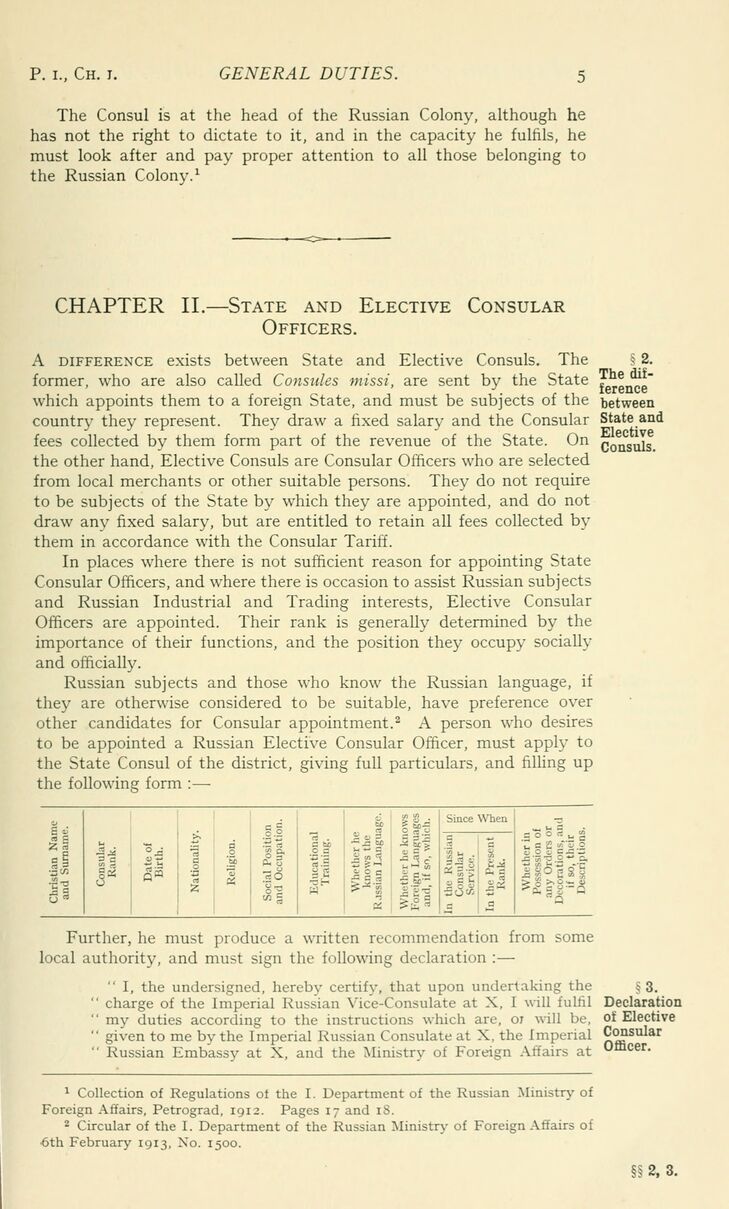
Full resolution (JPEG) - On this page / på denna sida - Chapter I. — General Duties - Chapter II. — State and Elective Consular Officers

<< prev. page << föreg. sida << >> nästa sida >> next page >>
Below is the raw OCR text
from the above scanned image.
Do you see an error? Proofread the page now!
Här nedan syns maskintolkade texten från faksimilbilden ovan.
Ser du något fel? Korrekturläs sidan nu!
This page has been proofread at least once.
(diff)
(history)
Denna sida har korrekturlästs minst en gång.
(skillnad)
(historik)
The Consul is at the head of the Russian Colony, although he
has not the right to dictate to it, and in the capacity he fulfils, he
must look after and pay proper attention to all those belonging to
the Russian Colony.[1]
 |
| CHAPTER II. — State and Elective Consular Officers. |
| Christian Name and Surname. | Consular Rank. | Date of Birth. | Nationality. | Religion. | Social Position and Occupation. | Educational Training. | Whether he knows the Russian Language. | Whether he knows Foreign Languages and, if so, which. | Since When in the Russian Consular Service. | Since When in the Present Rank. | Whether in Possession of any Orders or Decorations, and if so, their Descriptions. |
<< prev. page << föreg. sida << >> nästa sida >> next page >>